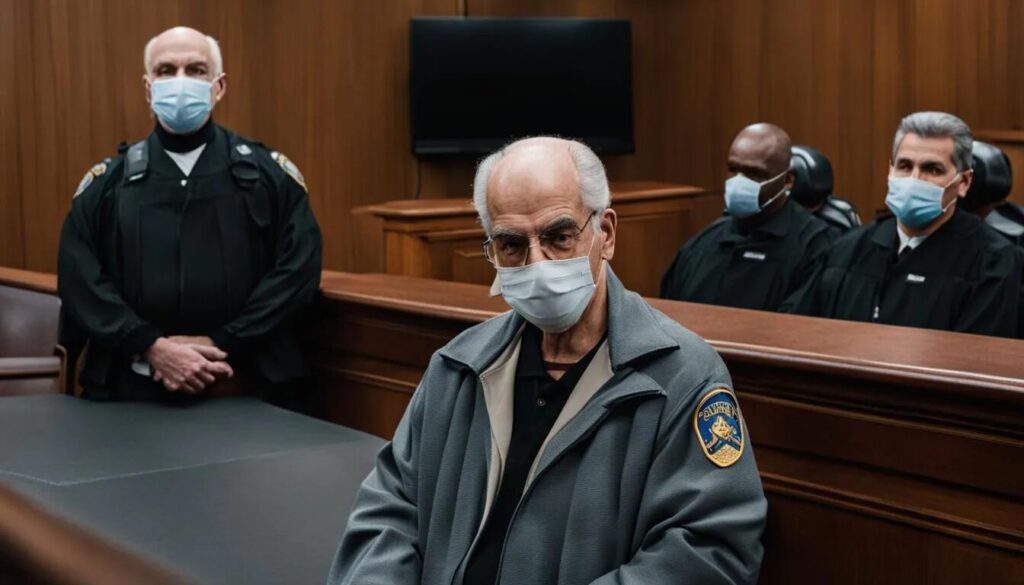Allen Weisselberg sentenced to five months for perjury
Ex-Trump CFO Allen Weisselberg Sentenced for Perjury
Background of the Case
Allen Weisselberg, once a key executive at the Trump Organization, faced legal challenges after being implicated in financial irregularities. The legal saga involving the Trump Organization and its executives has taken a dramatic turn with the sentencing of Allen Weisselberg, the former CFO, to five months in jail for perjury. Weisselberg’s conviction stems from his testimony in the civil fraud trial against former President Donald Trump, where he was found to have lied under oath. This development comes after Weisselberg had already served three months in jail for tax fraud and falsification of business records, highlighting the complex and far-reaching nature of the legal issues at play.
Charges and Perjury Allegations
Weisselberg was accused of committing perjury during the civil fraud trial against Donald Trump and his company. The charges stemmed from his testimony under oath, which was deemed false by the court. The allegations were a significant blow to Weisselberg’s reputation and marked a turning point in the legal saga involving the Trump Organization.
Sentencing and Incarceration
After pleading guilty to two counts of perjury, Weisselberg faced sentencing. The court, citing his age and the seriousness of his offense, handed down a sentence of five months in jail. This term was in line with the plea agreement and reflected the severity of his actions, which involved misleading the court during a critical legal proceeding.
“The promise is five months of incarceration.”
Weisselberg’s sentence required him to report to Rikers Island, a notorious jail complex in New York City. His incarceration was a direct consequence of his failure to uphold the truth in his testimony. The judge’s decision to send him to Rikers underscored the importance of honesty in the legal system, particularly during court proceedings.
Reactions and Implications
The sentencing of Allen Weisselberg sparked reactions from various quarters, with some viewing it as a necessary consequence for his actions and others seeing it as a further blow to the Trump Organization. The case also raised questions about the effectiveness of plea bargains in resolving complex financial crimes and the role of individual executives in corporate misconduct.
“Mr. Weisselberg is there anything you’d like to say?”
As Weisselberg began his second stint in jail, the legal drama surrounding the Trump Organization continued. The former CFO’s refusal to cooperate with prosecutors in exchange for his settlement added another layer to the ongoing legal battles. The sentencing also came just days before Donald Trump was set to face his own criminal trial, further entangling the former president and his business in a web of legal issues.
Weisselberg’s Previous Conviction and Release
Prior to his latest incarceration, Weisselberg had served three months in jail for tax fraud and falsification of business records. His release was contingent on good behavior, and he had been expected to serve only a fraction of his sentence. However, his subsequent perjury conviction led to his return to jail, highlighting the consequences of such actions.
“He spent about 100 days in lockup last year on a tax fraud conviction for accepting $1.7 million in company perks off the books, including free rent on a Manhattan pad and tuition payments for his grandkids.”
The sentencing of Allen Weisselberg is a significant development in the ongoing story of the Trump Organization’s legal woes. As the former CFO faces the consequences of his actions, the case serves as a reminder of the importance of truthfulness and the potential costs of deceit in the business world.
Looking Ahead: The Future of the Trump Organization and Its Executives
As the Trump Organization and its executives face the challenges of the ongoing criminal investigation and the fallout from the civil fraud trial, the future remains uncertain. The sentencing of Allen Weisselberg is a significant event that underscores the importance of accountability and the potential consequences of legal missteps. The organization and its leadership must now navigate these challenges with transparency and a renewed focus on ethical business practices. – USNEWSNBUZZ
Must Read Blogs:
- How Did Julie Andrews Lose Her Voice?
- Understanding the Potential Ban on TikTok: Insights Post House Advancements in the Aid Package
- Grammy Winner Star Mandisa dead at 47: A Legacy That Lives On
- Florida Communism Bill (House Bill 1557): Discussion and Controversy
- Former Florida governor and US senator Bob Graham passed away at 87.

